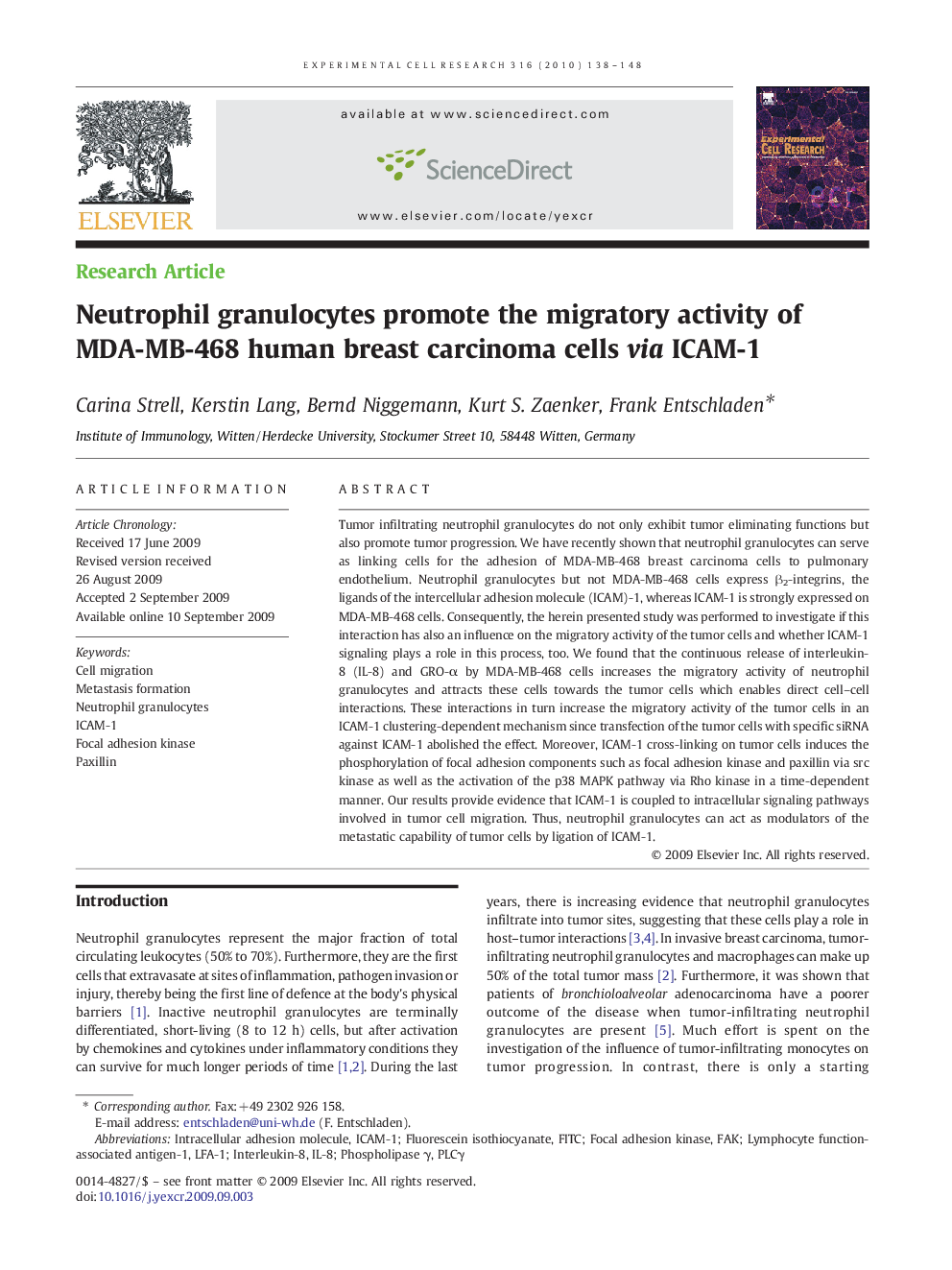| Article ID | Journal | Published Year | Pages | File Type |
|---|---|---|---|---|
| 2132199 | Experimental Cell Research | 2010 | 11 Pages |
Tumor infiltrating neutrophil granulocytes do not only exhibit tumor eliminating functions but also promote tumor progression. We have recently shown that neutrophil granulocytes can serve as linking cells for the adhesion of MDA-MB-468 breast carcinoma cells to pulmonary endothelium. Neutrophil granulocytes but not MDA-MB-468 cells express β2-integrins, the ligands of the intercellular adhesion molecule (ICAM)-1, whereas ICAM-1 is strongly expressed on MDA-MB-468 cells. Consequently, the herein presented study was performed to investigate if this interaction has also an influence on the migratory activity of the tumor cells and whether ICAM-1 signaling plays a role in this process, too. We found that the continuous release of interleukin-8 (IL-8) and GRO-α by MDA-MB-468 cells increases the migratory activity of neutrophil granulocytes and attracts these cells towards the tumor cells which enables direct cell–cell interactions. These interactions in turn increase the migratory activity of the tumor cells in an ICAM-1 clustering-dependent mechanism since transfection of the tumor cells with specific siRNA against ICAM-1 abolished the effect. Moreover, ICAM-1 cross-linking on tumor cells induces the phosphorylation of focal adhesion components such as focal adhesion kinase and paxillin via src kinase as well as the activation of the p38 MAPK pathway via Rho kinase in a time-dependent manner. Our results provide evidence that ICAM-1 is coupled to intracellular signaling pathways involved in tumor cell migration. Thus, neutrophil granulocytes can act as modulators of the metastatic capability of tumor cells by ligation of ICAM-1.
